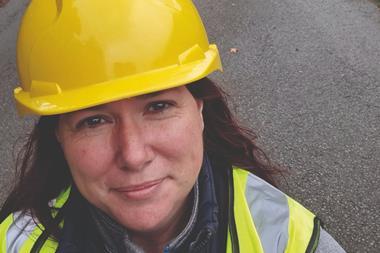WeWork’s travails have thrown the spotlight on the UK property world’s asset management expertise.

WeWork’s travails have thrown the spotlight on the UK property world’s asset management expertise.
In a social media-driven world, there was always a danger that WeWork would become uncool with young customers long before the average middle-aged London developer realised that it had gone out of fashion.
And out of fashion WeWork has gone – not necessarily with its customer base, but with the financiers who were always going to need to bail out a loss-making business.
A successful asset management strategy is fundamental not just to managing a building but thinking about the wider location that it is in. With tenants having more and more choice, landlords need to work ever harder to provide not only the type of space that tenants want but the wider environment within which they want to work and spend time.
Tenant satisfaction is a key driver in delivering value not only to the landlord but also to the investor. Flexible office providers have flourished as they have created new business models offering a high degree of agility in their approach to tenants, creating membership clubs rather than long-lease arrangements. New open-plan working space has accelerated the change in our approach to flexible working and the way that we collaborate with our colleagues.
What must we do to convince investors that their money is safe with us, and that our asset management capabilities can match those in other asset classes where there is arguably more transparency to asset management?
ESG issues
First, we need to get fully to grips with environmental, social and governance (ESG) issues. It’s still a regular argument behind closed doors in property that sustainability will be a passing fad, just as it seemed after the last crash in 2008, and that it will be forgotten again in just a few years’ time.
This isn’t good enough, particularly as the BPF has been carrying out sterling work through its ‘Redefining Real Estate’ agenda to prove that the wider public doesn’t rate the industry and that there is major work to do to change attitudes.

Next, asset and property managers need to learn from the WeWork experience by building stable and flexible working communities with the best mix of amenities, without outsourcing the task to providers that are not connected to the community that they are trying to grow.
British Land made the first move through its Storey flexible brand in 2017 and others have followed. Creating flexible communities will become a core task for the asset managers of the 2020s.
Advisers, too, will need to learn to understand fully what today’s new breed of fleet-of-foot, flexible occupiers want without simply recommending a single solution to soak up short-term demand.
The real estate sector has made progress but is still hampered by being too siloed and is not focused enough on customer experience. Despite the growth of proptech, we are scratching below the surface and too much of our world is too short-sighted, nervous or suspicious to fully embrace technology.
Under-use of data
The third flaw we must tackle is under-use of data, with big benchmarks available through the likes of MSCI only measuring portfolios of properties.
Individual properties can be measured according to: Energy Performance Certificates; WiredScore connectivity; BREEAM ratings for sustainability; WELL certifications for wellbeing; and customer satisfaction indices run by organisations like RealService.
With this array of measurement tools, investors can appraise the asset management expertise being applied to individual buildings rather than having to rely in the listed sector on the standard of management being applied across company portfolios.
A new way to invest in the best-managed properties will be through IPSX, the new property stock exchange, which will provide greater transparency by putting the success of the asset manager centre stage.
Investors in IPSX will be able to scrutinise if a property is being managed well or indifferently and will deploy their capital accordingly.
In a low-capital-growth environment, the premium for real estate professionals will be on improving tenant retention and income growth, throwing the spotlight on the capabilities of the management team. There is a huge opportunity right now for best-in-class asset management and in deploying new digital solutions to what is a neglected area of innovation.
At IPSX, we hope to revive these skills for the 2020s – because investors in our exchange will vote with their feet.
Rob Bould is non-executive director at IPSX
































No comments yet